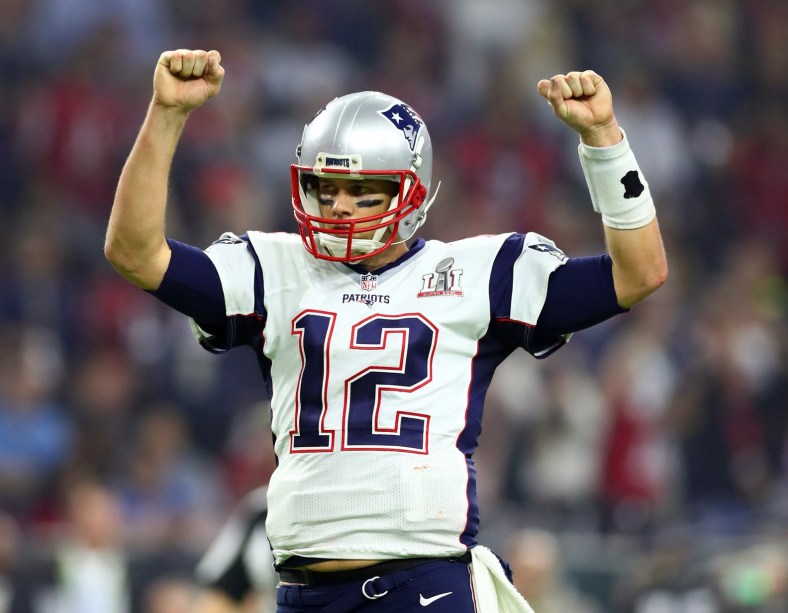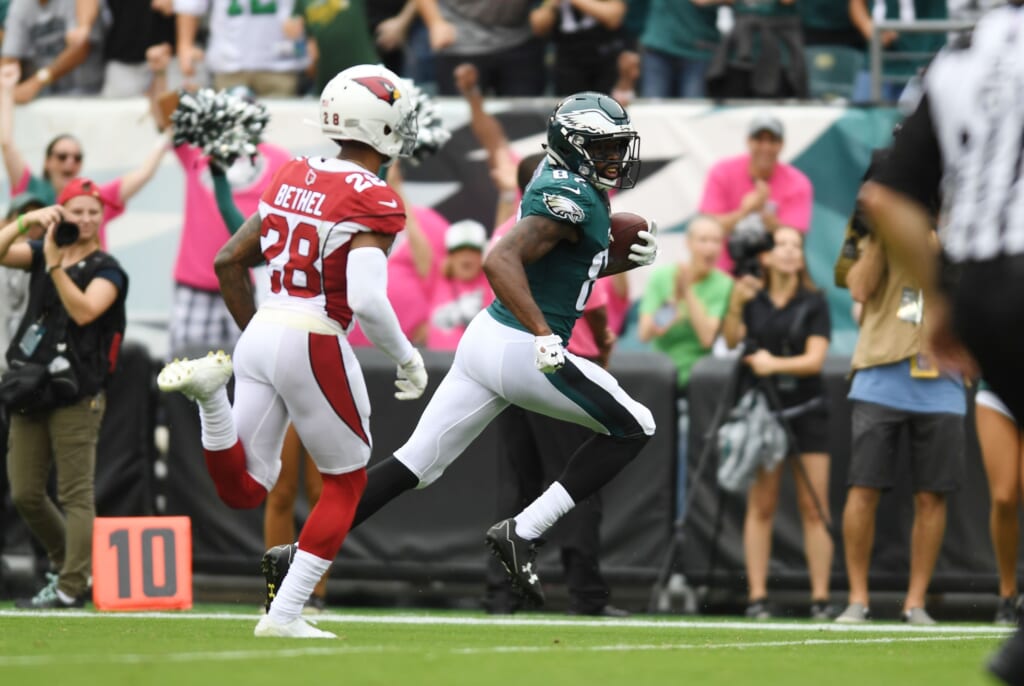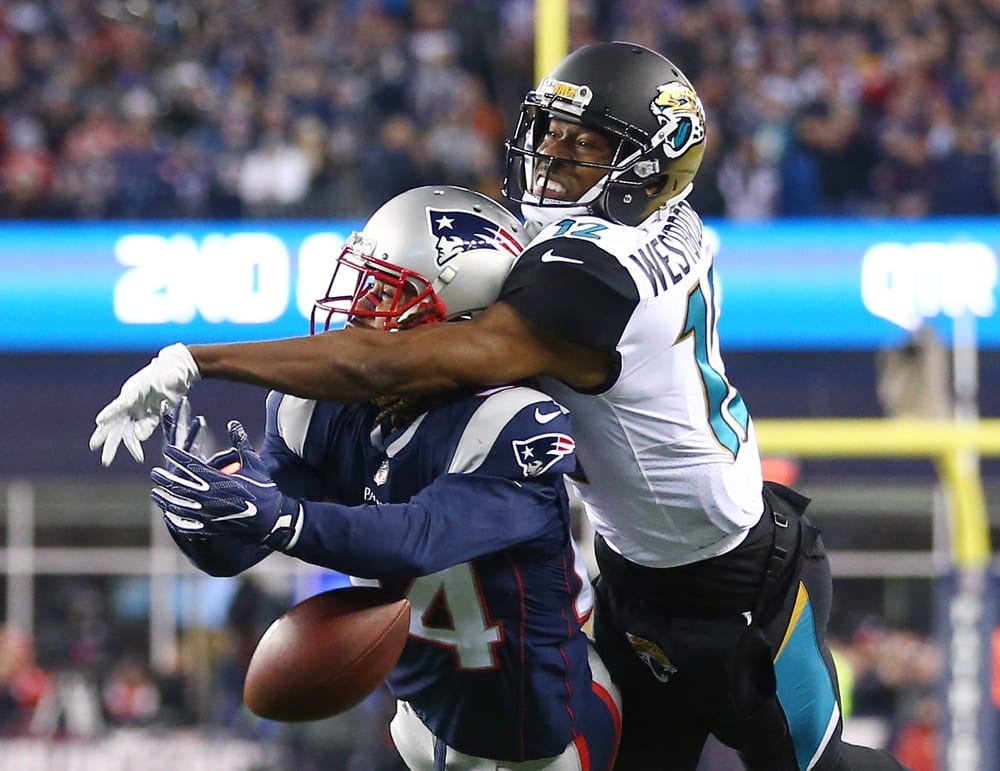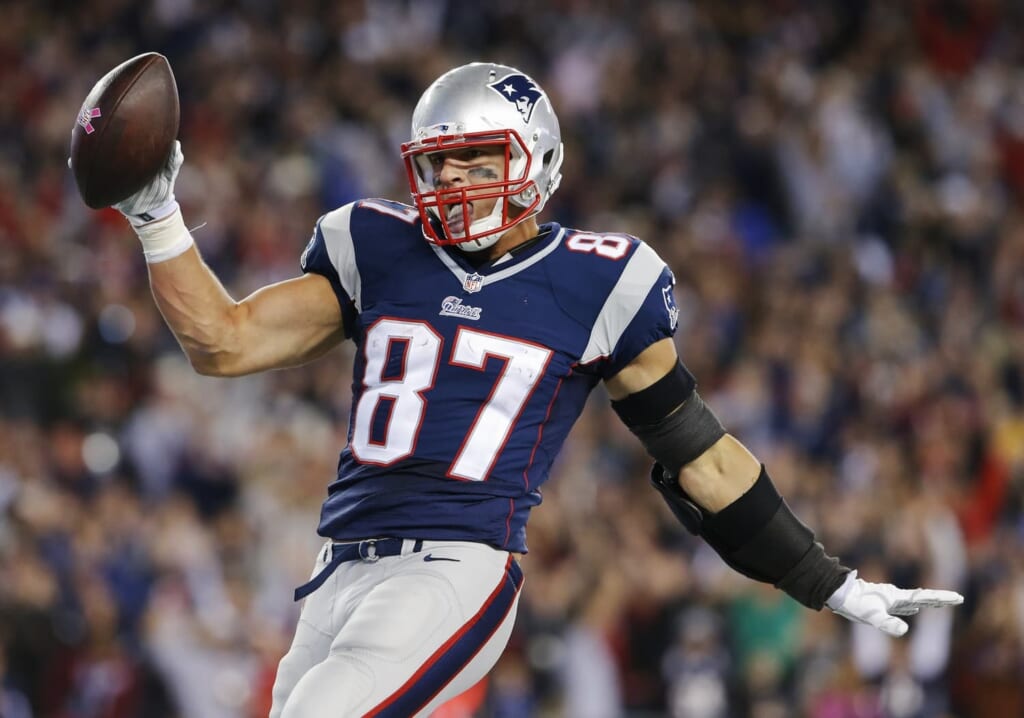
Because it’s crunch time, with only two days left until the game, it’s time to throw some cold water over the growing sentiment that the Philadelphia Eagles are going to win Super Bowl LII.
It’s true that the public — this scribe included — deeply underestimated the post-Carson Wentz Eagles. (In my case, the Carson Wentz Eagles as well — this is not a take I’m proud of writing). Philadelphia is also somewhat well-equipped to beat New England from a personnel standpoint, which is to say that the Eagles can pressure Tom Brady from the interior.
Insofar as the formula for beating the Patriots in the Super Bowl goes historically, that seems to be fairly important (though a two-game sample size, both from years ago, feels less than indicative). New England’s defense isn’t especially good either, even after a late-season resurgence, lending credence to the idea that Nick Foles can actually win this game. The public has had much less trouble convincing themselves of Foles’ credibility than it did in the first two rounds. Recency bias at work.
This is where the argument starts to fall apart.
Nick Foles played very well in the NFC Championship Game and against a better defense than New England’s, at that. It’s also worth noting that, although he was helped by a pick-six from Patrick Robinson, the Eagles started every drive but one — a fourth quarter drive when the game was out of hand — inside their own 30. You can’t poke holes in his performance against Minnesota.
You can, however, look at Foles’ larger history, which probably matters more than what he did in one game. And, from 2014 until January 21, Foles was a bad quarterback, full stop. Over that time, with the Eagles, Rams and Chiefs, Foles averaged less than six adjusted net yards per attempt. Even in the Divisional Round against the Falcons, when Foles was significantly better (8.20 adjusted yards per attempt), Philadelphia’s offense was disastrous in the red zone.
Those red-zone struggles are worth noting, because they seem to be the biggest drop-off that’s occurred with Foles under center. The Eagles led the league in red zone DVOA during the regular season, despite ranking 28th in red zone rushing DVOA, per Football Outsiders. It stands to reason they were quite good at throwing the ball in those situations. They were, in fact, over 40 percent better than the team in second place in red zone passing DVOA, and that includes the regular season games Foles played. Isolate them — along with the two playoff games — and the numbers start to look a little different. In those games, Philadelphia’s red zone DVOA is -8.3 percent, well below average.
If you’ve ever heard a Patriots alum talk about football, the phrase “four-point plays,” comes up a lot. New England stresses red zone offense and defense — the difference between a field goal and touchdown adds up over the course of the game. That was quite evident this season. Despite ranking an abysmal 31st in overall defensive DVOA, the Patriots shot up to fourth once the ball was in the red zone, per Football Outsiders.
As for the rest of the field, New England is better equipped than you might think. As well as Doug Pederson schemed against the Falcons and Vikings, there aren’t many wrinkles left to break out. At this point, the Patriots know they’re going to see whams, traps, and pin-and-pull concepts in the run game. They know Pederson will torture their linebackers with a slew of RPOs and, after seeing it for two straight games in the postseason, the Patriots will be looking for Foles to try and draw pass interference by going deep to Torrey Smith on the first drive.

Of course, there’s a difference between knowing what a team might run and actually stopping it. Mike Zimmer is no lackey and there’s not a ton to be learned about a scheme between Game 17 and 18.
What has changed is that the Patriots know Nick Foles is capable. It’s a lot harder to load up against the run a week after Foles torched the Vikings by going deep. However, New England does have a handful of advantages along the offensive line. Eagles left tackle Halapoulivaati Vaitai coughed up eight sacks this season, per the Washington Post, and Trey Flowers is red hot. He’s notched seven quarterback hits along with a sack in the postseason, per NFL GSIS, bringing life to a pass rush that was abysmal for most of the season. Deatrich Wise and James Harrison have played well off the edge as well, though I’m less confident that they’ll dominate one-on-one matchups.
In the middle, Malcom Brown is one of the most underrated 1-techniques in football. Though he’ll be playing through a knee injury, Brown is capable of controlling gaps against most centers. His matchup against Jason Kelce is more even than most people realize. An out-of-nowhere Ricky Jean-Francois resurgence, as well as Adam Butler stringing together two straight solid games from the interior, are both worth noting as well.
As much as Jay Ajayi has been praised in recent weeks, he’s averaging 3.8 yards per carry in the postseason. The conventional wisdom is that the Patriots might try to take Ajayi away in Marshall Faulk-ian fashion, forcing Foles to throw. Why not the reverse?
Given the defensive line matchups, it might make sense for New England to try and make Ajayi beat them. Atlanta and Minnesota already tried making Foles beat them. He did. Forcing the Eagles to run it, however, could be a way to get them to third down. Philadelphia was incredible in those situations during the regular season, which has continued with Foles, but third down was, characteristically, New England’s best on defense. The goal should be to force Foles to throw it on third down — not to dare him to throw it in general.
The Patriots’ secondary hasn’t been particularly good this season, but they rank eighth in pass defense DVOA against tight ends. Patrick Chung has been a force for New England, which doesn’t bode well for an Eagles team which targeted Zach Ertz 13 times in two weeks, finding great success in doing so. Stephon Gilmore has gotten much better throughout the year as well — the Patriots don’t win against Jacksonville if not for him.

Daring the Eagles to run will work even better if the Patriots can score early in the game. This is the first time since 2010 that New England ranked top-three in both passing and rushing DVOA. The Eagles’ potential for interior pressure has been beaten into the ground as a story, but that doesn’t make it less valid. However, interior pressure isn’t the end-all, be-all. The Seahawks got interior pressure in Super Bowl XLIX and lost. So did the Falcons in Super Bowl LI. So did the Jaguars last week. All of those teams lost.
If the Eagles are going to win with interior pressure, three things need to happen.
First, they can’t slow down, ever. Philadelphia has pass-rushing depth from the edge, with Brandon Graham, Chris Long, Vinny Curry, and Derek Barnett rotating on either side. But do we trust Beau Allen or Destiny Vaeao to get pressure when Fletcher Cox or Timmy Jernigan sit? Allen has 8.5 pressures this season, Vaeao has one. They’re probably not going to wreak havoc in this game.
Second, they need to make Brady stand in the pocket, which means playing sound coverage across the board. That goes double in intermediate and short areas. New England’s offensive line is fine, but it ranks fifth in pressure rate because the Patriots get the ball out fast. They use running backs and slot receivers as safety blankets, picking defenses apart short before going for anything big. There aren’t many holes in the Eagles’ defense, but they are 19th in pass defense DVOA over the middle of the field. Against third and fourth wideouts (usually slot guys), the Eagles are 22nd. This is going to be a problem for them.
Third, they need to stop the run. This is the most simple of the three, as well as the one the Eagles are best-equipped to do. Philly is third in run defense DVOA. If it’s losing in that area, it’s pretty hard to see them competing at all. That doesn’t mean it’ll be easy — Dion Lewis is still one of the most underrated running backs in the NFL. He gets through contact as well as anybody in the league and even if the Eagles win at the line of scrimmage, the play won’t be over. But if the Patriots are running the ball well, it won’t really matter if Philly can get interior pressure.
We’ve gotten through nearly 1500 words without mentioning Rob Gronkowski, so it’s probably time to touch on that. In all likelihood, Malcolm Jenkins will draw the assignment, though the Eagles will certainly vary their coverages or throw in brackets once in a while. Jenkins is capable, yet Philly is 17th in DVOA against tight ends. Gronkowski is the best tight end of all time. If he’s healthy, Gronkowski will get what he wants — at this point, it’s as simple as that.

The Eagles should operate under the assumption that they can’t stop Gronkowski and try to stop everybody else. It’s been well documented that they’re going to try and pressure with four men — anything more than that and Brady will pick them apart. Philadelphia must devote resources to Lewis (and James White) in the passing game or one of them will replicate Shane Vereen’s performance in Super Bowl XLIX.
On the outside, the Jaguars tried playing bail coverage on Brandin Cooks and it was a disaster. It’s worth being scared of Cooks beating you deep — his speed gets really scary if he breaks press coverage. The Eagles will need to find a happy medium there, though Patrick Robinson is trustworthy in a one-on-one matchup. Even so, the big picture looks rough. Philly needs everything to go right.
There’s also a special teams disparity in this game, skewed heavily in favor of New England. The Pats have the better kicker, punter and returners — none are especially close except punt returner by Football Outsiders’ metrics.
It’s not impossible for the Eagles to win this game, as no shortage of people have pointed out. But we shouldn’t conflate that with, ‘The Eagles will win this game.’ Philadelphia needs to pitch a perfect game and that’s not easy to do against Brady and Belichick.